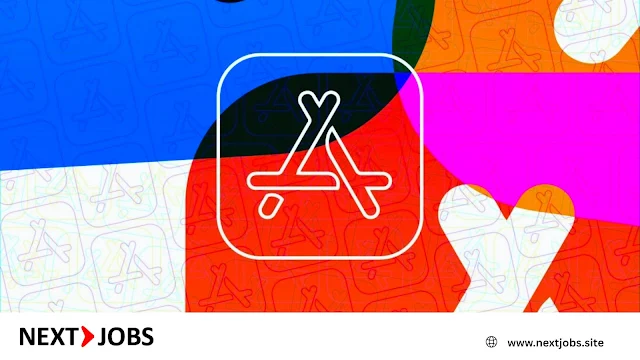Apple has announced significant changes to its EU App Store policies to align with the European Union’s Digital Markets Act (DMA), narrowly meeting the June 26, 2025, deadline to avoid further fines. Following a €500 million penalty in April 2025 for DMA non-compliance, Apple’s updates address developer communication restrictions and introduce a revised, complex fee structure. However, critics, including Epic Games CEO Tim Sweeney, argue these changes represent “malicious compliance” that stifles competition.
Key Changes to EU App Store Policies
Relaxed Anti-Steering Rules: EU developers can now link to alternative payment methods for subscriptions and in-app purchases across any channel—websites, alternative app marketplaces, or other apps. These links can be integrated via web views or native app experiences without Apple’s previous mandatory warning screens or prescribed text.
New Fee Structure:
Initial Acquisition Fee: 2% on digital goods and services sold to new users via the App Store (first six months after download, exempt for Small Business Program members and existing users).
Store Services Fee: Two tiers based on services chosen:
Tier 1: 5% for basic features (app reviews, manual updates, antifraud measures).
Tier 2: 13% for full App Store benefits (marketing tools, automatic updates, curation, app insights). Small Business Program members pay 10%.
Core Technology Commission (CTC): 5% on digital purchases made outside the App Store for apps using the StoreKit External Purchase Link Entitlement (EU) Addendum. This replaces the Core Technology Fee (CTF) of €0.50 per install after 1 million downloads for developers on alternative EU terms. The CTC applies to standard terms developers, with a full transition by January 1, 2026.
Developer Requirements: Apps using external payment links must report transactions via Apple’s External Purchase Server API for fee calculations. Developers cannot offer both App Store in-app purchases and alternative payment options within the same EU App Store app.
Why the Changes?
The updates respond to EU pressure following a €500 million fine in April 2025 for anti-steering practices that restricted developers from directing users to external payment options. The European Commission had warned of daily fines up to 5% of Apple’s global revenue (potentially €50 million/day) if compliance wasn’t met by June 26. Apple’s new rules aim to avoid further penalties while maintaining revenue streams, though the company plans to appeal the original fine.
Criticism and Controversy
Epic Games CEO Tim Sweeney, whose company won a U.S. lawsuit against Apple’s payment restrictions, labeled the changes “blatantly unlawful” on X, arguing they impose unfair taxes and cripple apps with competing payment systems. The European Commission is evaluating whether Apple’s new policies fully comply with the DMA, with potential for additional fines if found lacking. Critics like Spotify also argue that the fee structure, potentially totaling 25% with combined fees, undermines the DMA’s goal of fair competition.
Impact on Developers and Users
Developers: The tiered fee system offers flexibility but adds complexity. Small developers may prefer Tier 1’s lower 5% commission, while larger ones reliant on marketing tools may opt for Tier 2. The CTC could deter developers from using external payments due to added costs. Apple’s fee calculator helps navigate the structure, but compliance remains a bureaucratic challenge.
Users: Starting with iOS 18.6 and iPadOS 18.6, users will see a new interface for installing alternative app marketplaces or apps from developers’ websites. Later in 2025, an API will enable developers to initiate such downloads directly within apps, potentially increasing user choice but introducing security risks Apple warns against, including malware and fraud.
Apple’s Stance
Apple defends its changes, claiming the CTC reflects investments in developer tools and ecosystem security. The company argues that DMA requirements increase risks like malware and fraud, prompting safeguards like app notarization and marketplace developer authorization. Apple plans to consolidate into a single business model by January 1, 2026, applying the CTC universally to digital goods and services sold via the App Store or alternative marketplaces.
What’s Next?
The European Commission will assess Apple’s compliance, with outcomes determining whether additional fines or cease-and-desist orders are issued. Apple’s appeal, due by July 7, 2025, and ongoing talks with the EU could shape future policies. The changes may set a precedent for global app store regulations, impacting Apple’s $100 billion+ App Store economy.
Conclusion
Apple’s EU App Store overhaul balances DMA compliance with revenue preservation but has sparked debate over fairness and complexity. While developers gain more freedom Ditto, the fee structure and ongoing scrutiny signal a pivotal moment for Apple’s ecosystem. Download apps from alternative marketplaces or explore external payment options to test the new rules. Stay updated on Apple’s evolving policies at TechCrunch.
Join visionaries at TechCrunch All Stage in Boston, MA, on July 15, 2025. Register now.



0 Comments